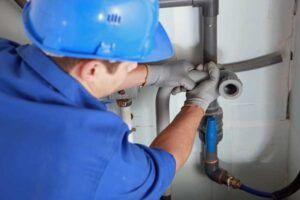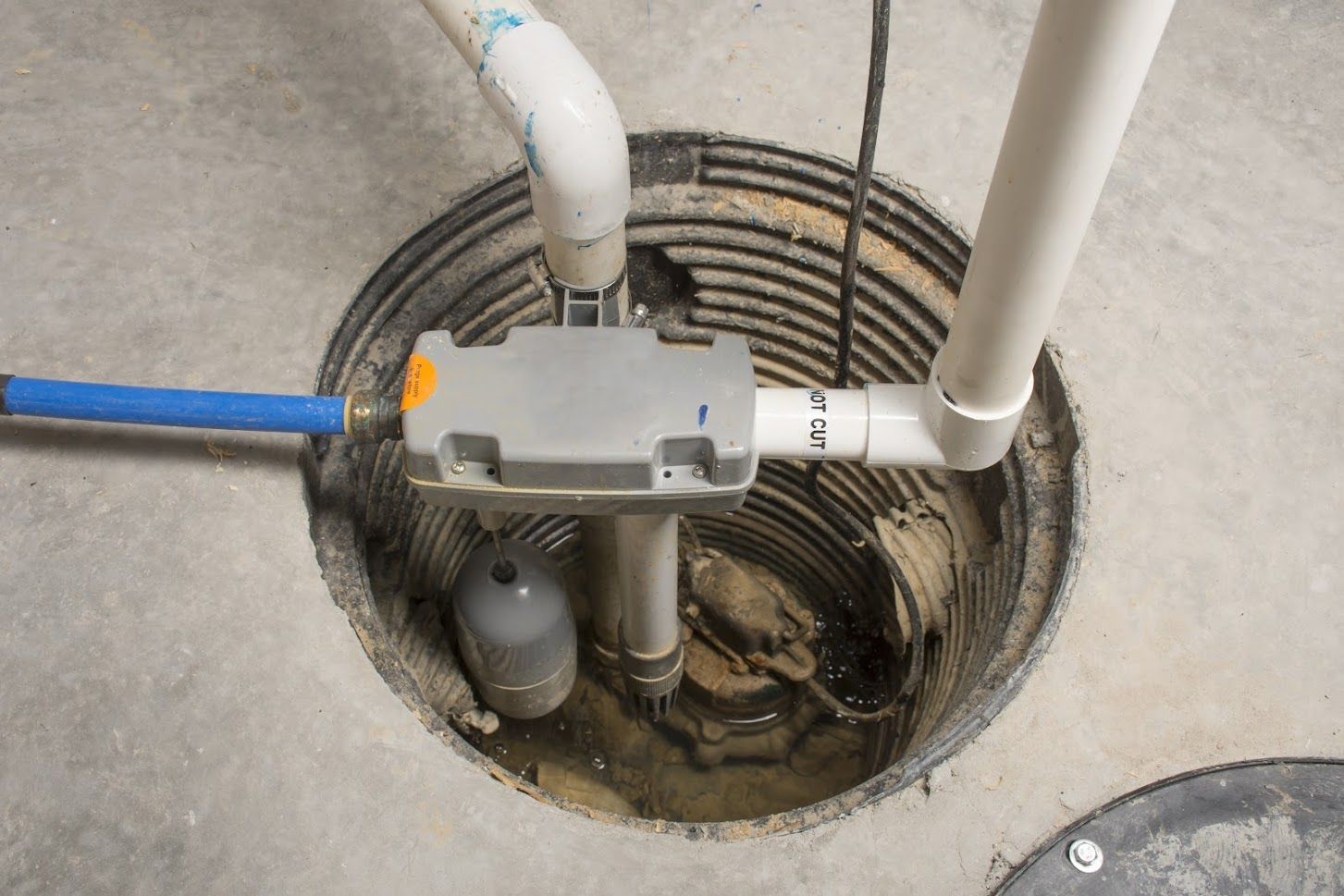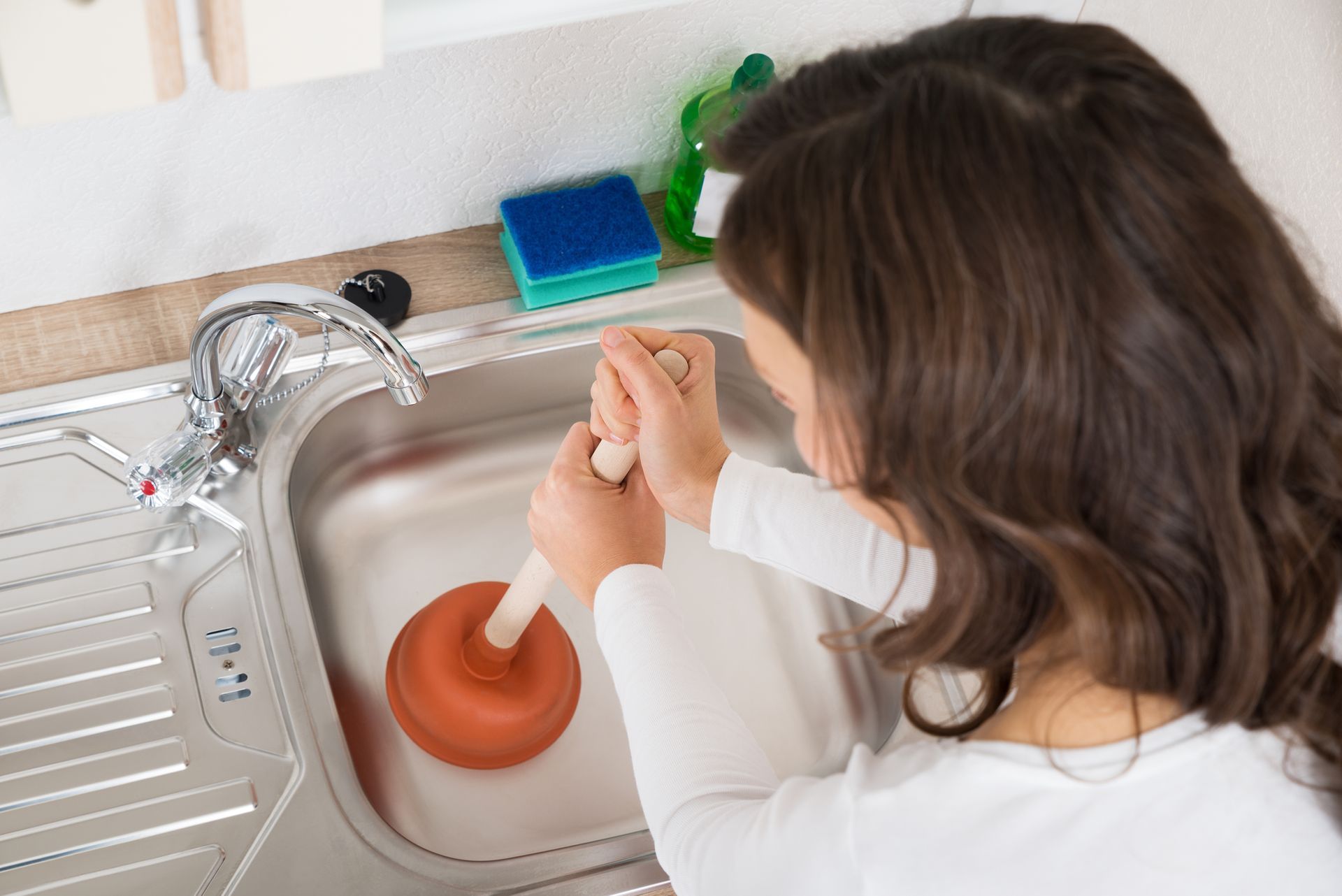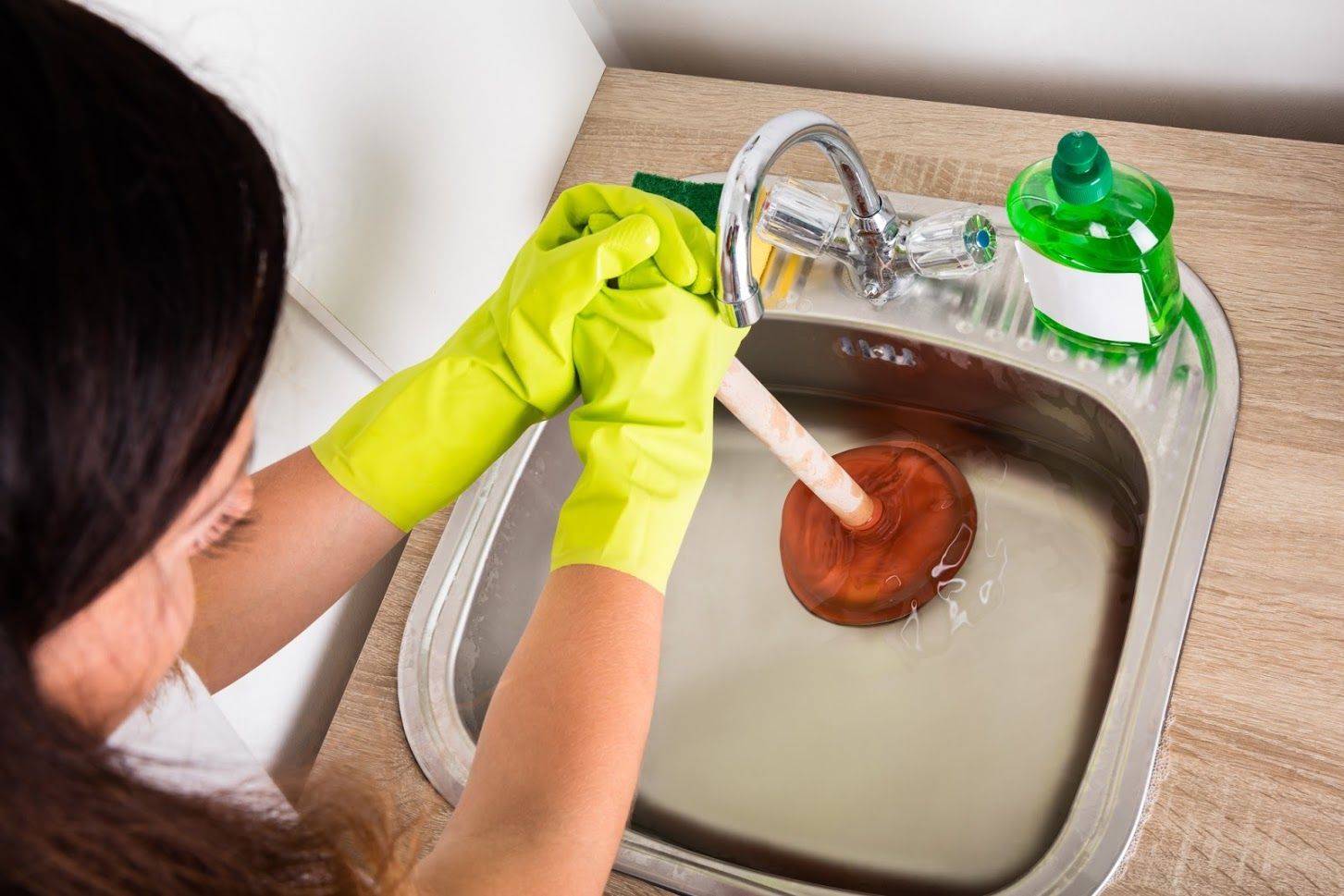4 Signs of Age-Related Issues With Your Water Heater
Your home’s water heater is one of the most important appliances you own. Your water heater is solely responsible for supplying hot water through your plumbing system. The average water heater will last at least 12 years, and sometimes even longer, with regular care and maintenance.
Don’t ignore age-related issues with your water heater. Read on to learn the signs of water heater failure so you can replace or repair your unit before you run out of hot water.

- Discolored Water
Your water heater is showing its age if the hot water you run has a yellow, orange, or red tinge to it. If your cold water is also discolored, then the issue is probably related to aging pipes rather than the water heater itself — although you should still have your water heater inspected.
Discolored hot water is a result of sediment or rust inside your water heater. Once rust sets in your water heater, your unit will have to be replaced. This is why it’s important to have your water heater regularly inspected. When these issues, like leaks from a valve or loosely-connected piping, are caught early, you can prevent corrosion and rust in your water heater, allowing the unit to last longer.
- Strange Sounds
Your water heater should be relatively quiet when it heats up, making slight humming or even hissing sounds. A buildup of sediment in the tank makes water heaters rumble, shake, and groan as they heat water.
Sediment naturally found in your home’s water supply may harden inside your water heater with time, making the unit less efficient and wearing your water heater out. Strange sounds are a sure sign your water heater is in trouble and probably ready to be replaced.
In the future, avoid sediment-related wear in your water heater by having the unit flushed and drained every year. This is something your plumber can do — and draining and flushing the unit will extend the lifespan and functionality of your water heater.
- Temperature Loss
Unless you’ve changed the temperature on your water heater’s thermostat, your water heater should always supply a reliable source of hot water. If the water temperature drops, you run out of hot water more frequently than usual, or your unit takes longer to supply hot water again, then your water heater is probably failing.
You can check the serial number on your water heater to see just how old your unit is. Or, your plumber will tell you how old your water heater is. Once your appliance reaches a decade old, it’s time to consider a replacement — unless, of course, it’s a tankless water heater.
- Ongoing Leaks
Your water heater should not leak. Leaks are not only dangerous to your water heater as they cause corrosion and rust, leaks also damage the floor and other areas of your home where your water heater rests.
Unfortunately, water heater leaks are difficult to control. For this reason, it’s a better investment to pay for a new water heater instead of worrying about the damage a leaky heater can do to your home. Contact your plumber for a recommendation about which water heater will work best for you. Your plumber will assist you in choosing a new water heater that is energy efficient and large enough to meet your family’s needs (family size and home square footage are taken into account when choosing a tank size).
If your water heater is showing signs like those mentioned above, contact our team at
Quality Plumbing. Our plumbing professionals will inspect your unit and advise you on how best to solve your problem. Call us today to schedule an appointment.








★★★★★
The total process from booking a service call, by phone, to the installation of a steel reinforced waterline hose on our refrigerator, was a pleasurable experience. A retired plumber recommended QP. Jeff had to pull out the refrigerator, remove the plastic waterline, install the new waterline, check to make sure the water dispenser was working and put the refrigerator back. Jeff was careful and mindfull of our wooden floor as the refrigerator was in a built-in cabinet. Since we live in a condo we want to eliminate all possibilities for a water leak. Jeff not only did his skillful job, he also educated us on the different water supply lines. I would recommend QP.
- Janeine G.
Button
★★★★★
Quality Plumbing did a rough-in plumbing install for a bathroom and kitchen sink in my basement. Very communicative, helped plan the space, and did a great job on the install. Will be using them again!
- Ian H.
Button
★★★★★
Called them when my water heater broke, they were over same day with a new one. Logan is great, he's fixed a couple things over the last year and is always professional and informative.
- Nick B.
Button
★★★★★
Quality plumbing is amazing 👏 when my brothers home had a problem with water pressure, they were able to schedule quickly, identify the problem and provide cost effective solutions quickly. When they did the work, they were on time on budget and cleaned up everything afterwards. Thank you for your great service Quality Plumbing! …
- Rich R.

★★★★★
Quality Plumbing is my go-to plumbing company for all my projects. I had one big project and after meeting Jeff, I’ve specifically requested him to come out for my other 2 projects. He’s incredibly punctual, efficient, and keeps the area nice and clean. Great to communicate with and provides clear answers to all my questions. Jeff is very professional and knowledgeable in his craft. Every time I call, Delaney will always pick up my phone calls and get me scheduled right away. Never had great success with plumbing companies until I started working with Quality Plumbing. They have unbeatable prices and will provide you with an honest solution to your problems. Highly recommend choosing Quality Plumbing!
- Alex D.
Button

★★★★★
The total process from booking a service call, by phone, to the installation of a steel reinforced waterline hose on our refrigerator, was a pleasurable experience. A retired plumber recommended QP. Jeff had to pull out the refrigerator, remove the plastic waterline, install the new waterline, check to make sure the water dispenser was working and put the refrigerator back. Jeff was careful and mindfull of our wooden floor as the refrigerator was in a built-in cabinet. Since we live in a condo we want to eliminate all possibilities for a water leak. Jeff not only did his skillful job, he also educated us on the different water supply lines. I would recommend QP.
- Janeine G.
Button
★★★★★
Quality Plumbing did a rough-in plumbing install for a bathroom and kitchen sink in my basement. Very communicative, helped plan the space, and did a great job on the install. Will be using them again!
- Ian H.
Button
★★★★★
Called them when my water heater broke, they were over same day with a new one. Logan is great, he's fixed a couple things over the last year and is always professional and informative.
- Nick B.
Button
★★★★★
Quality plumbing is amazing 👏 when my brothers home had a problem with water pressure, they were able to schedule quickly, identify the problem and provide cost effective solutions quickly. When they did the work, they were on time on budget and cleaned up everything afterwards. Thank you for your great service Quality Plumbing! …
- Rich R.

★★★★★
Quality Plumbing is my go-to plumbing company for all my projects. I had one big project and after meeting Jeff, I’ve specifically requested him to come out for my other 2 projects. He’s incredibly punctual, efficient, and keeps the area nice and clean. Great to communicate with and provides clear answers to all my questions. Jeff is very professional and knowledgeable in his craft. Every time I call, Delaney will always pick up my phone calls and get me scheduled right away. Never had great success with plumbing companies until I started working with Quality Plumbing. They have unbeatable prices and will provide you with an honest solution to your problems. Highly recommend choosing Quality Plumbing!
- Alex D.
Button








